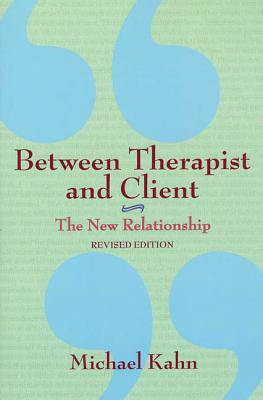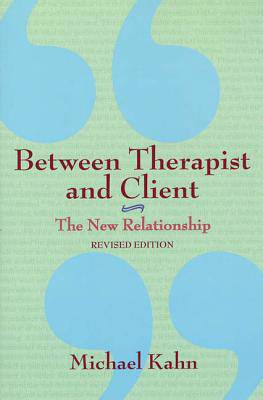
- Retrait gratuit dans votre magasin Club
- 7.000.000 titres dans notre catalogue
- Payer en toute sécurité
- Toujours un magasin près de chez vous
- Retrait gratuit dans votre magasin Club
- 7.000.0000 titres dans notre catalogue
- Payer en toute sécurité
- Toujours un magasin près de chez vous
25,45 €
+ 50 points
Description
Perhaps the most important aspect of the therapeutic process is the relationship between therapist and client. For years, two major schools of thought have strongly disagreed about what the nature of that relationship should be. The humanists emphasized warmth and empathy. The psychoanalysts kept a neutral, cool distance. Recently, however, the beginnings of a reconciliation between these traditions have opened new possibilities for the way therapists relate to clients.
In Between Therapist and Client, Michael Kahn shows why this new consensus is promising. Beginning with Freud's discovery of transference, Kahn traces the history of the clinical relationship from Carl Rogers' introduction of humanistic concerns through Merton Gill's theory and technique of transference analysis, to the pioneering work of Heinz Kohut, who has most successfully brought together psychoanalytic and humanistic thought. Using vivid examples from his own practice, Kahn shows how a coherent synthesis of these various approaches leads to the most successful clinical relationships. Completely updated with greater discussion of ethics and countertransference, the new edition of Between Therapist and Client is essential reading for those in psychotherapy both therapist and client.Spécifications
Parties prenantes
- Auteur(s) :
- Editeur:
Contenu
- Nombre de pages :
- 224
- Langue:
- Anglais
Caractéristiques
- EAN:
- 9780805071009
- Date de parution :
- 15-09-97
- Format:
- Livre broché
- Format numérique:
- Trade paperback (VS)
- Dimensions :
- 145 mm x 208 mm
- Poids :
- 204 g

Les avis
Nous publions uniquement les avis qui respectent les conditions requises. Consultez nos conditions pour les avis.






